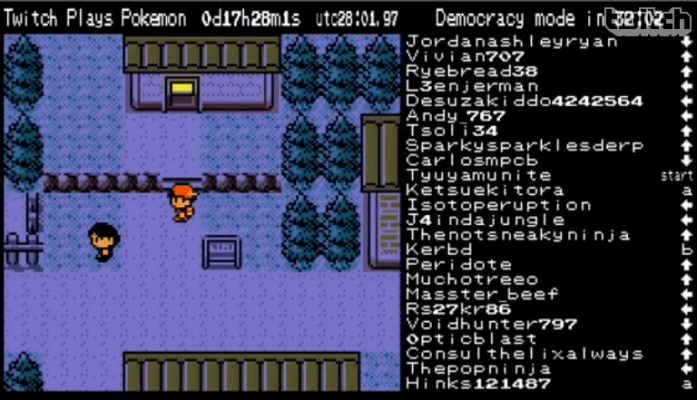With Google’s courtship of Twitch and Facebook’s purchase of Oculus back in March, it seems that tech giants are getting serious about being part of the next big trends in gaming. That has gamers both excited and worried.
It’s easy to see how either company can help its new acquiree grow: both Twitch and Oculus are still rather small companies that have the potential to go mainstream with the proper resources behind them. The downsides have to do with the giants’ overall business models.
With Oculus and Facebook, there’s a concern that the social conglomerate will bring virtual reality to the masses by plastering it with ads:
 Facebook’s seemingly hands-off approach to managing Instagram should give hope to most that the company knows how to avoid ruining a valuable company with meddling. Google, on the other hand, is known for assimilating the companies it buys so that it can better utilize their data to serve targeted ads.
Facebook’s seemingly hands-off approach to managing Instagram should give hope to most that the company knows how to avoid ruining a valuable company with meddling. Google, on the other hand, is known for assimilating the companies it buys so that it can better utilize their data to serve targeted ads.
It’s also a huge target for content owners who regularly harass the company for enabling access to copyrighted works without payment through search and YouTube uploads. Gamers in particular have felt the impact of Google’s efforts to avoid major lawsuits from those looking to enforce copyrights over the last few years.
On YouTube, “Let’s Play” videos are a popular genre in which gamers record their gameplay sessions while providing funny commentary or feedback on whether the game they’re playing is worth buying. While you’d think game publishers would love the opportunity to get free advertising on a mass scale, some have had concerns that people are watching games instead of buying and playing them.
Nintendo, for instance, has issued takedown notices and claimed that it deserves advertising revenue for videos of its games. Then there’s Content ID, the system YouTube implemented to make sure people weren’t uploading copyrighted materials. Videos with copyrighted music discovered by Content ID are generally either taken down or stripped of sound. Either result strips the value from “Let’s Play” videos.
Twitch’s service is basically Let’s Play Live. People watch to see their favorite League of Legends players dominate in high-stakes matches or to see how they practice, to decide whether a game is worth buying, or to laugh at the guy who makes great jokes while blowing s#!t up – while actually interacting with the person playing through its embedded chatrooms. That experience can be a lot like a radio show with a great disc jockey: You’re entertained by the personality of the person running the show, but also by the music they play and the fun calls from the audience.
While YouTube can use its resources to make Twitch a truly mainstream service by giving it a more stable infrastructure and expertise in providing smooth mobile performance, that would also put it on the radars of more copyright holders. If Content ID comes to Twitch streams, Twitch users might have to stop playing their own music while streaming. The obvious solution here is to let Twitch streamers easily embed music from YouTube into their channels, but even that could go over poorly with gamers.
The other big concern Twitch fans have voiced in response to the acquisition story — first reported by Variety — is that Google will force Google+ integration onto Twitch profiles as it did with YouTube. In both of the comment threads regarding the acquisition on the League of Legends section of Reddit, the vast majority of responses expressed fears of such a change, with comments like “Just seeing the + sign near Twitch is making me feel sick,” receiving hundreds of upvotes from the community.
Again, there’s an obvious solution that would let Google gather data on its users without turning them off of the service: tie Google Accounts to Twitch profiles, but don’t make them mandatory and don’t force users to show their real names. Twitch already lets people sign in with Facebook without having to use their real names for their profiles.
With a little restraint, Google could earn a lot of goodwill with gamers by making Google Accounts another convenient option and keep people’s identities on the service limited to the profiles they create and curate on Twitch itself.
